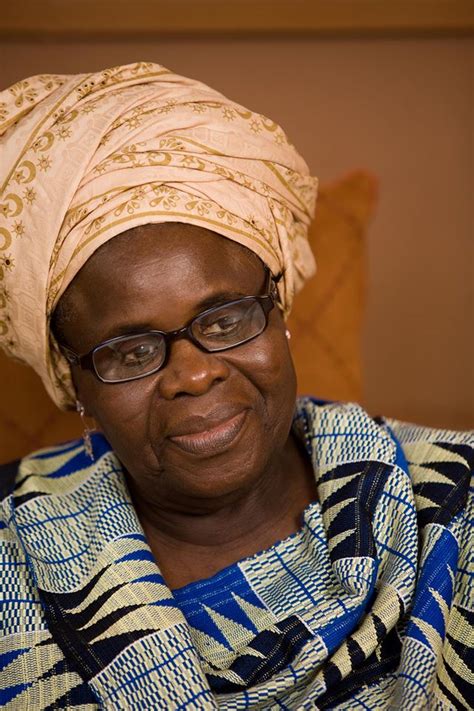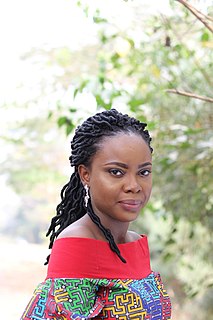A Quote by Ama Ata Aidoo
Toyin Falola has given us what is truly rare in modern African writing: a seriously funny, racy, irreverent package of memories, and full of the most wonderful pieces of poetry and ordinary information. It is a matter of some interest, that the only other volume A Mouth Sweeter Than Salt reminds one of is Ake, by Wole Soyinka. What is it about these Yorubas?
Related Quotes
And again, we're kind of trying to be in that place, that's just so absurd and irreverent and hysterical and it's something that at our company we're kind of, we're so irreverent about everything, we're sort of irreverent about the establishment, we're irreverent about civilization, we're irreverent about philosophy, we're irreverent about religion.
The angels laugh at old Karl. They laugh at him because he tries to grasp the truth about God in a book of Dogmatics. They laugh at the fact that volume follows volume, and each is thicker than the previous ones. As they laugh, they say to one another, ‘Look! Here he comes now with his little pushcart full of volumes of the Dogmatics!’—and they laugh about the persons who write so much about Karl Barth instead of writing about the things he is trying to write about. Truly, the angels laugh.
It doesn't matter how many televisions and computers and pieces of stereo equipment the Chinese send to us, even if they're sending them to us only in return for some funny, little, green pieces of paper. That is a balanced trade. They got what they wanted: the green pieces of paper. We got what we wanted: the plush toys, the computers, the stereo components.
Whereas modern cynicism brought despair about the ability of the human species to realize laudable ideals, postmodern cynicism doesn't — not because it's optimistic, but because it can't take ideals seriously in the first place. The prevailing attitude is Absurdism. A postmodern magazine may be irreverent, but not bitterly irreverent, for it's not purposefully irreverent; its aim is indiscriminate, because everyone is equally ridiculous. And anyway, there's no moral basis for passing judgment. Just sit back and enjoy the show.
We have inherited a fear of memories of slavery. It is as if to remember and acknowledge slavery would amount to our being consumed by it. As a matter of fact, in the popular black imagination, it is easier for us to construct ourselves as children of Africa, as the sons and daughters of kings and queens, and thereby ignore the Middle Passage and centuries of enforced servitude in the Americas. Although some of us might indeed be the descendants of African royalty, most of us are probably descendants of their subjects, the daughters and sons of African peasants or workers.
Most young dealers of the Silicon Chip Era regard a reference library as merely a waste of space. Old Timers on the West Coast seem to retain a fondness for reference books that goes beyond the practical. Everything there is to know about a given volume may be only a click away, but there are still a few of us who'd rather have the book than the click. A bookman's love of books is a love of books, not merely of the information in them.
Among those today who believe that modern poetry must do without rhyme or metre, there is an assumption that the alternative to free verse is a crash course in villanelles, sestinas and other such fixed forms. But most... are rare in English poetry. Few poets have written a villanelle worth reading, or indeed regret not having done so.
Poetry is the most informative of all of the arts because everything comes down to poetry. No matter what it is we are describing, ultimately we use either a metaphor; or we say "that's poetry in motion." You drink a glass of wine and say, "that's poetry in a bottle." Everything is poetry, so I think we come down to emotional information. And that's what poetry conveys.
Poetry is the most direct and simple means of expressing oneself in words: the most primitive nations have poetry, but only quitewell developed civilizations can produce good prose. So don't think of poetry as a perverse and unnatural way of distorting ordinary prose statements: prose is a much less natural way of speaking than poetry is. If you listen to small children, and to the amount of chanting and singsong in their speech, you'll see what I mean.

































